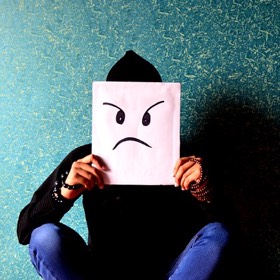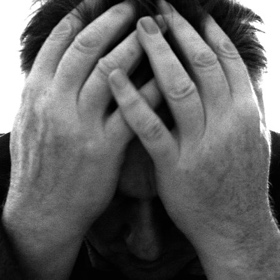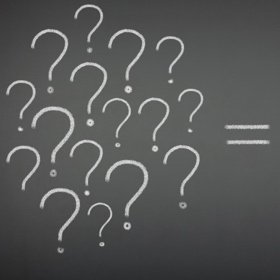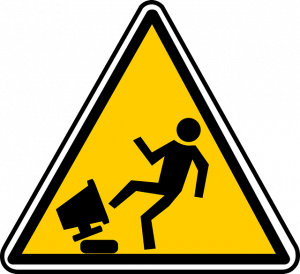Understanding our emotions and how they manifest in the body.
Plus how TCM + Acupuncture at Shine can help.
Emotions are mental stimuli that influence our everyday lives. Under normal circumstances, they are not a cause of an illness but if they go ‘wrong’ they’re considered as one of the major internal causes of disease in Traditional Chinese Medicine (TCM).
While Western Medicine tends to stress the psychological aspects of psychosomatic ailments, the pathological damage to the internal organs is very real indeed and is of a very primary concern, when a client enters the treatment room of a TCM therapist with such a complaint. It’s well known and experienced that excess emotional activity causes severe energy imbalances, blockages and organ impairments.
Hardly any human being can avoid being angry, sad, worried or afraid sometimes. It is important to realize that one should not fully identify one’s mental and spiritual life with that of the emotional life, as the latter can be so transient. It is also worth mentioning that it is perfectly possible to be alive and lively without being overburdened by excessive emotions.
Emotions only become a cause of disease when they’re excessive, prolonged or both as mentioned above. Although they’re a  definite cause of it, they also have a healthy counterpart. The same mental energy that produces and ‘nurtures’ excessive emotions can be used and directed towards creative and fulfilling aims. Each emotion as a cause of a disease is only one side of the coin. The other side is a mental energy that pertains to the relevant organ, be it the liver, gallbladder, spleen, stomach, pancreas, kidney, bladder, heart, small intestine, large intestine and lungs. For example the same mental and affective qualities of the liver, which may give rise to anger and resentment over many years, can be harnessed and used for very creative mental development, because a healthy liver/gallbladder network’s functions, manifest in a good balance of firmness and flexibility, assertiveness, decisiveness, creativity and commitment to growth and development.
definite cause of it, they also have a healthy counterpart. The same mental energy that produces and ‘nurtures’ excessive emotions can be used and directed towards creative and fulfilling aims. Each emotion as a cause of a disease is only one side of the coin. The other side is a mental energy that pertains to the relevant organ, be it the liver, gallbladder, spleen, stomach, pancreas, kidney, bladder, heart, small intestine, large intestine and lungs. For example the same mental and affective qualities of the liver, which may give rise to anger and resentment over many years, can be harnessed and used for very creative mental development, because a healthy liver/gallbladder network’s functions, manifest in a good balance of firmness and flexibility, assertiveness, decisiveness, creativity and commitment to growth and development.
In TCM, excessive emotions act as stimuli, which disturb the Mind and Soul, alter the balance of the internal organs and the harmony of Qi (energy) and Blood, which can be a cause of disease. For this reason, emotional stress is an internal cause of the illness that injures the organs directly. On the other hand, and this is very important, the state of the internal organs can affect our emotional state.
Furthermore, all emotions, besides affecting the relevant organ directly, affect the heart indirectly because the heart houses the Mind. Our hearts can recognize and feel the effect of emotional tension.
Let’s discuss the effects of each emotion individually:
· GRIEF + DEPRESSION/SADNESS
Grief is the emotion of the lungs and the large intestine, organs associated with the metal element. Loss of any kind will often trigger a feeling of being energetically drained and of having difficult bowel function. Grief can stay with us for a while, and can go unresolved until we decide to release it. When grief is unresolved and becomes chronic, depression and an inability to ‘let go’ of things can arise from this lung energy deficiency. This could eventually interfere with lung function and oxygen circulation. Since our lungs control the flow of energy in our bodies, it’s important that we give ourselves space to deal with painful events rather than stifling them.
· FEAR + FRIGHT
Fear is the emotion of the kidneys and the bladder, organs associated with the water element. It is a normal adaptive emotion, but can become chronic when ignored. Kidney issues often arise when we are dealing with fear, such as a change in life direction or unstable living conditions. When we experience extreme fright, our kidneys struggle to hold the energy and we can quite literally pee our pants.
·  WORRY/PENSIVENESS + OVERTHINKING
WORRY/PENSIVENESS + OVERTHINKING
Worry is the emotion of the spleen/stomach/pancreas network, organs associated with the earth element. Too much pensiveness, worrying and insecurity can weaken our ability to digest – simply knot the energy. When we are worried to a state of anxiety, we find it hard to digest and accept a situation or life event. Lack of trust and ease towards the experiences and the foods we take in to our lives will make it impossible for us to digest them. This can make us feel tired, lethargic, and unable to concentrate. Also here’s a bit of a paradox – too much mental stimulation can actually cause mental heaviness, the same as overwork. A week spleen can also be the cause of stubborn weight problems.
· ANGER/FRUSTRATION + DEPRESSION (MANIC)
Anger is the emotion of the liver and the gallbladder, organs associated with the wood element. Emotions like rage, fury or  aggravation can indicate that this energy is in excess, and when we experience these emotions consistently, our liver can get damaged. At this point, headaches or dizziness can be common. An imbalanced liver and gallbladder can be caused by longstanding feelings of repressed anger, such as resentment, frustration, and irritability. Also, as the same with other organs, imbalance can be caused by a poor diet, body pollutants such as chemicals, drugs and moulds etc.
aggravation can indicate that this energy is in excess, and when we experience these emotions consistently, our liver can get damaged. At this point, headaches or dizziness can be common. An imbalanced liver and gallbladder can be caused by longstanding feelings of repressed anger, such as resentment, frustration, and irritability. Also, as the same with other organs, imbalance can be caused by a poor diet, body pollutants such as chemicals, drugs and moulds etc.
Avoiding outbursts of anger will protect liver and gallbladder health. There’s also an interesting pattern related to stagnation of liver energy which manifests in mood swings or manic-depressive states. When the energy doesn’t move, one can feel low and when under certain circumstances the energy moves or releases, it can turn into a manic state.
· HAPPINESS/JOY + MANIA
 Joy is the emotion of the heart and the small intestine, organs associated with the fire element. When we experience true joy and happiness, we are nourishing our heart and small intestine energy. We feel mentally clear and able to process experiences. When we are lacking joy in our lives, the heart suffers and we can feel stuck, mentally chaotic, and have difficulty sleeping. Mania or obsessive joy can indicate an excess of scattered heart energy, and can be the cause of severe mental emotional disorders. Over stimulated heart energy could also cause agitation, insomnia and palpitations. In other words, even the pleasurable emotions can be out of balance.
Joy is the emotion of the heart and the small intestine, organs associated with the fire element. When we experience true joy and happiness, we are nourishing our heart and small intestine energy. We feel mentally clear and able to process experiences. When we are lacking joy in our lives, the heart suffers and we can feel stuck, mentally chaotic, and have difficulty sleeping. Mania or obsessive joy can indicate an excess of scattered heart energy, and can be the cause of severe mental emotional disorders. Over stimulated heart energy could also cause agitation, insomnia and palpitations. In other words, even the pleasurable emotions can be out of balance.
· ANXIETY
There are 4 origins of anxiety according to TCM:
1: If related to the lungs and large intestine, energy blockage can provoke shallow and irregular breathing or even holding of breath. The large intestine can be detrimentally affected by anxiety, making one more prone to issues like ulcerative colitis and IBS.
2: Kidney and bladder issues could also be at the root of this emotion. Our adrenals regulate our stress response and when adrenal problems become chronic, they can cause anxiety. TCM recognizes the adrenal glands in the same way as the kidneys as they are within the kidney yang aspect. Anxiety can also be caused by disharmony between the kidneys and a blazing heart fire, in this case rapid heart palpitations are experienced.
3: Anxiety can stem from liver imbalance too, when longstanding anger and irritation goes unresolved. In this case anxiety manifests as nervous tension, irritability, and insomnia.
4: Anxiety from excess worry and pensiveness stems from spleen and stomach imbalance. This can cause stomach swelling and bloating after eating.
 It is very important to know what actually happens inside the body and which issues are affecting our nervous system and vice versa.
It is very important to know what actually happens inside the body and which issues are affecting our nervous system and vice versa.
We can help ourselves by understanding our own mind/body connection, so as to clearly recognise the purpose and reality of our life and our own placement in the world. This knowledge should be given the highest priority, so that we are able to maintain a place or path where we are destined and determined, thus being able to fulfil our own potential and not struggle in life.
Appropriate consultation, correct diagnosis, reasonable attitude towards ones issues and then acupuncture treatment and dietary suggestions may help us to understand, balance and/or adjust the emotions that we are dealing with in our lives.
Acupuncture Practitioners at Shine
References:
· Hammer L.; (2005 2nd edition). Dragon Rises, Red Bird Flies: Psychology and Chinese Medicine. Seattle: Eastland Press
· Chinese Medicine And Psychiatry by Flaws and Lake (2001)
· https://www.onlineholistichealth.com/food-and-emotions-from-a-traditional-chinese-medicine-perspective/
· https://www.sakara.com/blogs/mag/116573893-the-root-of-emotional-imbalance-according-to-your-organs
https://www.shen-nong.com/eng/principles/sevenemotions.html – 032
· https://www.shen-nong.com/eng/principles/sevenemotions.html#032


